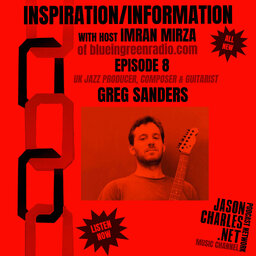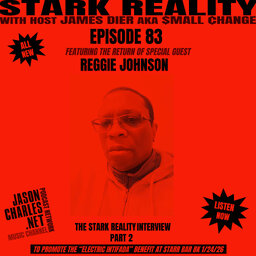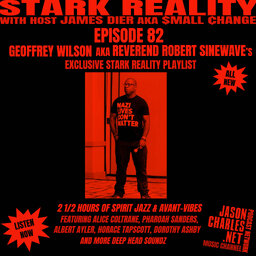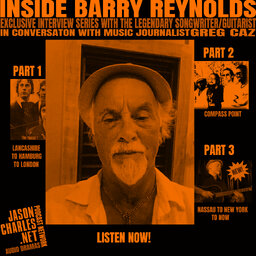INSIDE BARRY REYNOLDS
INSIDE BARRY REYNOLDS features the exclusive interviews series with legendary guitarist, songwriter and Compass Point Allstar BARRY REYNOLDS. BARRY R…Episode 1 of INSIDE BARRY REYNOLDS features Part 1 of this exclusive interview series with legendary guitarist, songwriter and Compass Point Allstar BARRY REYNOLDS, in conversation with New York DJ/musicologist and music journalist GREG CAZ.
On Part 1, Barry reveals his fascinating early years in Lancashire as a teenage guitar prodigy in the UK and around the early Beatles scene in Hamburg, becoming a top recording and studio musician and solo artist in early '70s London. A great raconteur and gentleman, Barry also talks about his fortuitous meeting with Marianne Faithfull in the late '70s, eventually creating the critical and commercial success Broken English and more.
Known for his iconic songwriting and guitar work with Marianne Faithfull and Grace Jones, Barry is also one of the original Compass Point Allstars, the group of international musicians that created some of rock-n-roll and reggae’s most ground-breaking ‘70s and ‘80s albums and sessions at Chris Blackwell’s studio in the Bahamas. He continues to produce, write and play with new and veteran international recording artists including Baaba Maal, Brazilian Girls, Tammy Faye Starlight and more.
For more information about INSIDE BARRY REYNOLDS, go to the Audio Dramas Channel on jasoncharles.net Podcast Network.
In 1 playlist(s)
JASONCHARLES.NET PODCAST NETWORK
Music and Arts Podcast Network from New York City. 4 Channels : Over 22 original podcast series. D…Social links
Recent clips

INSPIRATION/INFORMATION with Host Imran Mirza Episode 8 Guest UK Jazz Producer/Composer/Guitarist GREG SANDERS
1:16:43

STARK REALITY Episode 83 Guest REGGIE JOHNSON Returns, for "Electric Intifada" Benefit
1:27:17

STARK REALITY PLAYLISTS Episode 82 GEOFFREY WILSON aka REVEREND ROBERT SINEWAVE's Spirit Jazz & Avant Vibes Head Soundz Mix
2:33:58
 JASONCHARLES.NET PODCAST NETWORK
JASONCHARLES.NET PODCAST NETWORK